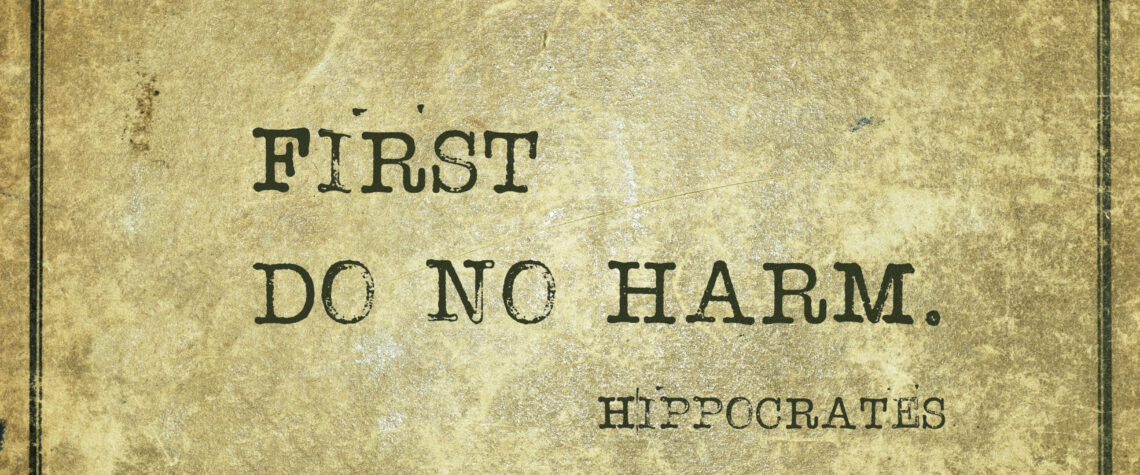As a clinical psychologist, I regularly hear from my clients and others their frustrations and their growing annoyance with other human beings who have lost their direction and furthermore have diluted our moral beliefs with increasing numbers of people “do not have a moral conscience/ a moral compass, or a sense of right and wrong”!
I am sure that many of you reading this article have had similar experiences and found yourself, after a similar encounter, pondering the dilemma for a day or two-sometimes longer-and arriving at an interesting point of insight. The insight in which you realize your mind (Including your subconscious mind that never really goes to sleep) had continued to work at understanding and solving, if possible, the disturbing event. Ironically, though you are rather tired, and not sure exactly why, you have arrived the gut sense people will have about their intuition, which is almost always right.
For myself, after experiencing a similar situation, I arrived at my first class as a sophomore in high school and the opportunity to study Greek. I had studied one year of Latin, like most of us have, but I didn’t really care for it at that time, however the Greek language fascinated me because it was not a dead language! No doubt, I wanted the understanding of the Greek language, but the fascination was particularly within the wisdom in the famous Hippocratic Oath. And as I continued in my study of the Greek language, the opportunity finally came the following year as we began to read the Hippocratic Oath in the very language that it was written!
Hippocratic Oath is named as such after, Doctor Hippocrates, who lived in Greece in the fourth century BC. Though he was the most recognized physician of his time, Doctor Hippocrates researched previous writings by physicians, going back to the eighth century BC, and he pulled together the all-time recognized most profound summary of medical ethics, The Hippocratic Oath, which I believe remains current for medical treatment today.
These principles are quite simple, but rather profound. I summarize them with abbreviations:
“I swear to keep, according to my ability and my judgment, the following Oath:
To consider dear to me as my parents, him who taught me this art; to live in common with him and if necessary to share my goods with him; to look upon his children as my own brothers, to teach them this art if they so desire without fee or written promise; to impart to my sons and the sons of the master who taught me and the disciples who have enrolled themselves and have agreed to the rules of the profession, but to those alone the precepts and the instruction.
I will prescribe regimens for the good of my patients according to my ability and my judgment and never do harm to anyone… I will prescribe to no one a deadly drug or give advice which may cause their death (euthanasia)… nor will I give a woman a pessary to procure abortion, but I will preserve the purity of my life and my arts. I will not cut on a patient who has a manifest disease that I do not understand, I will ensure this operation will be performed by a specialist in this art… and every house where I come to, I will enter only for the good of my patients and keep far away from all intentional ill-doing, be they free or slaves…. All that may come to my knowledge in the exercise of my profession, I will keep secret and will never reveal.”
The Greek language has deep meaning and is very precise in its written manner and wording. The Greek language has fewer words than most and the wording has unusual depth. For instance, the word “time” in Greek does not necessarily refer to the zodiac or cosmetology and associated science of the movements within our solar system, but rather captures the purpose of time by the definition of “time as opportunity”. As another instance, a Greek festival does not begin at 2 PM and ends at 8 PM. Rather as we understand the Greek language and culture, the festival begins when people gather and ends when they leave!
There is a movement in t several medical schools to redefine the Hippocratic Oath in such a way that would bring it up to date, however, I’m not sure how we redefine or retranslate, “first, do no harm”! Often the terminology for this change is called “alternative systems of ethics”, which I usually understand in clinical practice to mean “situational ethics”, which unfortunately comes down to do whatever you want, whatever feels good to you, and don’t really bother about how it might affect someone else.
Why would the Hippocratic Oath need to be updated? It covers much of today’s modern medical and ethical topics such as: abortion, euthanasia, prescribing necessary treatment, performing appropriate medical procedures, and the confidentiality as well as dignity that is included in treatment of a patient. Actually what is necessary is to simply follow this incredible Oath which has been the matrix of medical ethics for generations.
Isn’t it ironic that the scribe who was copying the Hippocratic Oath in its original language in the 12 Century, wrote the Greek manuscript so that the words formed the shape of a cross, the Cross on which Jesus Christ was crucified!
Tim Lynch PhD., Licensed Clinical Psychologist
Fellow and Diplomat of the American Board of Medical Psychotherapist













